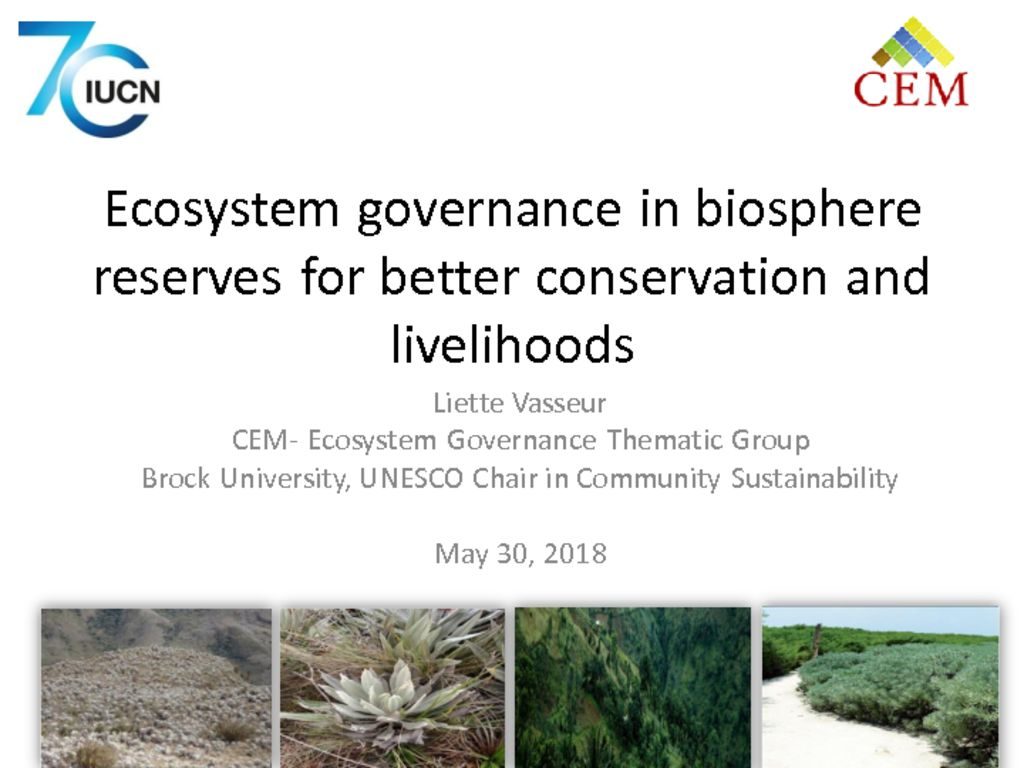04 Apr Ecosystem Governance in Biosphere Reserves for Better Conservation and Livelihoods
Biosphere reserves (BR) have been viewed as great places to demonstrate how sustainable development can be achieve through the integration of conservation and cultural values to enhance the wellbeing of local communities. To achieve such ultimate goals however there is a need to understand how decision can be made in such a way that it is inclusive of all actors in the BR. Ecosystem governance advocates to devolve decisions to communities and aims to include all actors in order to ensure that everyone has a voice at the table and better long term strategies are defined. While this approach may be quite attractive, there is a need to discuss the lessons learned and strategies used in different BR to extract the main ingredients and aspects that should be considered to enhance community-based conservation and sustainable development activities. Ecosystem governance and rights are complex and will be influenced by cultures and the capacity of communities to deal with issues.
Values that are attached to ecosystems can be not only economic but also intrinsic, depending on cultures. In BR where conservation and sustainable development should be the main emphases as well as climate change adaptation and mitigation, defining paths to inclusive governance may be a challenge, especially when different cultures co-habit in the same BR. Considering that these communities with different cultures may not value or view conservation and sustainable development the same way, how to balance the needs of everyone. There is a concern that governance arrangements, including legal entitlements, may limit the participation of women and men to fully participate in ecosystem management of their BR. How to make decisions more transparent, inclusive and equitable in BRs is important if we want to ensure conservation and community sustainability.
A round table discussion was held to bring together stakeholders from different cultures who shared examples of some of their lessons learned and ingredients that have led their BR and communities to enhance conservation and sustainable activities. After brief presentations, the floor was be opened for discussion, to extract what might be the main priorities and aspects to continue to examine to enhance ecosystem governance in BR and abroad.
Key Themes:
Governance, Rights & Conflict, Factors of Success in Community Conservation, Climate & Environmental Changes, Livelihoods
Presenters:
Liette Vasseur (Brock University)
Esperanza Arnés (Biosphere Reserve Thematic Group at the Commission on Ecosystem Management)
Laura Loucks (Clayoquot Biosphere Trust)
Presented Material:



